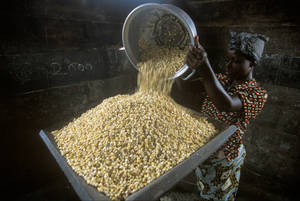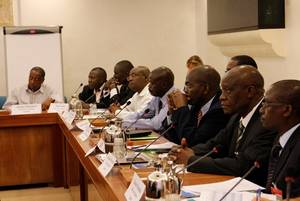Objectives

AgWA’s overall objective is to increase investment in agricultural water management that is socially equitable, profitable at the farm level, economically viable, environmentally friendly and sustainable, while contributing to the implementation of the CAADP National Process, in particular to its Pillar 1 (Land & water management) and the achievement of the Millennium Development Goals (MDGs). Specifically, AgWA aims to:
- scale up investments and ensure a more reliable, broad based and sustained flow of funds for agricultural water;
- promote analytical work and support sectoral strategies in the field of agricultural water;
- promote knowledge sharing, dissemination and capacity strengthening, and initiate innovative business lines in support to scaling up investments in agricultural water.
- promote regional integration, coordination and partnerships, and empowerment of national and regional stakeholders
CAADP & AgWA

The idea for creating AgWA emerged in part from a collaborative program implemented jointly by AfDB, FAO, IFAD, IWMI and the World Bank in 2007. The partners shared a concern that Africa was under-investing in AWM. Shortly after its initiation, NEPAD and its then new Comprehensive Africa Agricultural Development Programme (CAADP) began attracting attention, and NEPAD-CAADP was invited to participate in the Collaborative Program.
The CAADP is now central to AgWA’s work. The programme has four pillars or focus areas for agricultural improvement and investment. These are: (1) Sustainable Land and Water Management; (2) Market Access; (3) Food Supply and Hunger; and (4) Agricultural Research.
AWM falls under Pillar 1 and, as such, AgWA is intended to provide direct support to the implementation of this Pillar by mobilizing its pool of experts to support work in specific countries.
Some may be familiar with TerrAfrica, which is an initiative already in place to support sustainable land management; AgWA would complement TerrAfrica by supporting AWM within the context of the new Pillar 1 framework.
